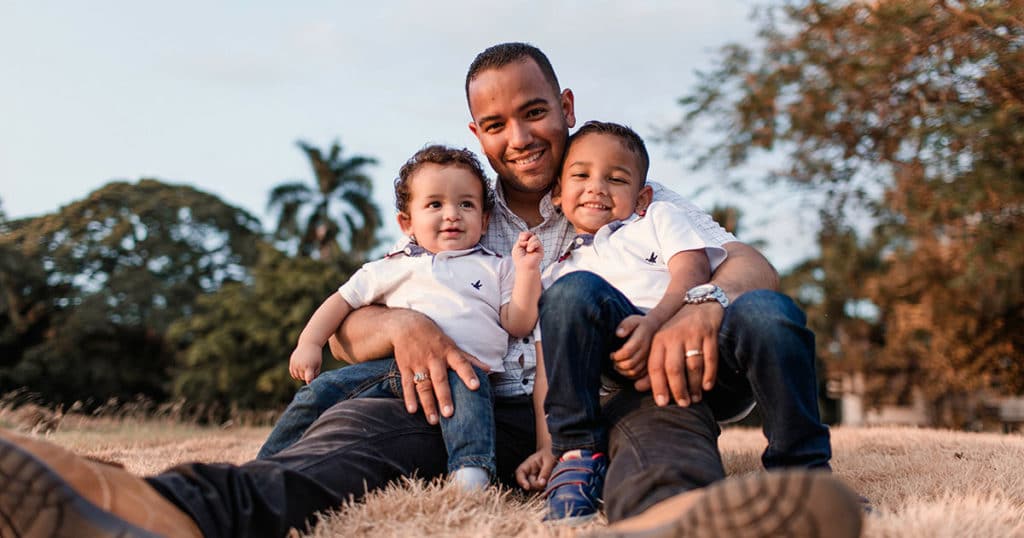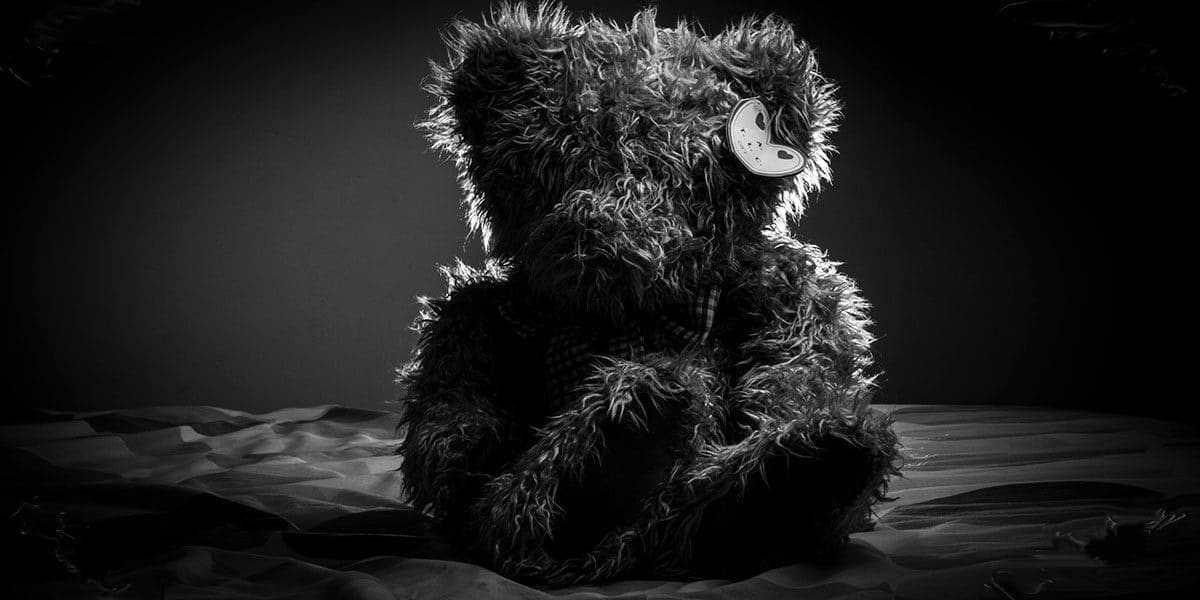Child Abuse Warning Signs to Watch For
Speaking as an abuse survivor, here are signs to watch out for in cases of sexual abuse:
- Avoidance of eye contact and casual touch around a certain person
- Intense anxiety or fear of going to a particular place or being left alone with someone
- Sudden self-consciousness of the body, poor body image
- Withdrawing from hobbies and things they enjoy
- Being overly withdrawn or clingy
- Unexplained, sudden anger or emotion
- Regular agression towards friends or younger siblings for no obvious reason
- Regularly touching themselves in front of others without thinking it’s inappropriate
- Preoccupation with private areas outside of age-appropriate curiosity
- Resistant to casual touch, outbursts with physical contact
- Avoiding eye contact with you and not wanting to talk about it, strong reaction to being asked about it
How to get closer to your kids and spot early warning signs
Kids are under so much pressure when they are growing up. That has never been more true today in a world that seems to be moving faster and faster and getting harsher by the day.
They face pressures at school, pressures at home and every child handles their emotions differently. Some lash out, some retreat or a combination of both. It can be hard to know what you’re dealing with underneath surface behaviors when the going gets rough.
Family changes in a divorce are hard to navigate, as everyone is outside of their comfort zone and reacting in their own natural ways. It’s easy to put everything on autopilot as you get a feel for a new normal in survival mode and lose touch with your kids.
But there has never been a more important time to stay close with them. Dads are such a vital part of a child’s the sense of security and guidance. Kids need to know that they are safe and loved. A dad’s presence and a dad’s concern for a child’s well-being is everything to a child.
Would you know if something was seriously affecting your child? Would you be able to sense that something isn’t right and be able to ask the right questions to get to the heart of what’s wrong? Would your children come straight to you if something was hurting them? Would you know the difference between a child that’s just having a bad day versus a child that’s facing something serious?
Get to Know Your Kids’ Behaviors
It isn’t always the case that a child would want to talk about everything with their parents. So it’s our job to make sure we create the best possible foundation for that to happen. And we do that simply by keeping a close relationship with them, and making sure they know we care.
Learn to read your child’s behaviors. Stay in tune with them so you’ll know when something isn’t right. When a child is having a bad day, the behaviors are temporary and will pass. It’s the recurring behaviors you need to watch out for.
I personally had several recurring behaviors in adolescence that I wasn’t even truly aware of, that were mistaken for regular teen angst, and understandably so. But there was something much deeper going on. I was a victim of sexual abuse, and my mother truly didn’t know.
Different children react to things differently. Being emotional and acting out is a typical trait that certainly goes along with regular teen angst, but if you suspect that something bigger might be going on with a child of any age, by all means listen to your gut. Your child needs you regardless of what they’re facing. Whether it’s abuse or something else entirely, they need you.
How to Approach Your Kids

These are very common signs and signals to sexual abuse, but don’t assume it is. But something is definitely going on. Gently ask them about what they are feeling.
- Ask open-ended questions to try and get them to open up about what they’re feeling. Come from a gentle and understanding, compassionate place (calm and gentle is the key.) If you are agitated, it adds another layer to the tension and they will feel like they did something wrong.
- Ask questions like “Is there anything that is making you uncomfortable?” “Is there something that you’re afraid of?” or “Can you talk about why you feel sad/angry?”
- Expect that they won’t tell you right away, and be aware that if there is a strong reaction to your questions and they don’t want to talk about it, you have hit on something.
- Specifically, tell them that you love and care about them very much and want to help them with whatever is causing them pain. Hearing those specific words from a father is the whole world.
- Don’t give up. It may take more than one loving conversation to get them to talk to you.
I also want you to be aware of something. Sexual abuse from strangers happens, but it is far more common for abuse to happen with people they already know that are close to them. It is more commonly family and friends. You don’t need to be suspicious of everyone, but definitely, be aware and pay attention, especially if your child shies away from a particular person.
The most important thing is staying attentive and in tune enough to be able to gauge how your kids are doing. In this arena, it’s never too late, even if you have some catching up to do.
There are a lot of easy, cost-effective ways to connect with your child. You can take them to theme parks and buy them things and give them all the fun in the world. But all they really need is you.
Kids love all the attention they can get from dad, especially in today’s world that is full of technology and distractions. Even if you only have a good 15-minute window of time, you can make that to be excellent quality time with your kids. And it’s never too late to start if you aren’t doing it already.
The key is providing your undivided attention. Eliminate all distractions for given periods of time to really connect. Your attention to your children carries a lot of weight, and I think you’ll find if you provide it, it goes a long way in ensuring good behavior as well.
Here are a few simple suggestions to get you started if you need fresh ideas (and all afford great opportunities to talk with them):
- Donut dates
- Going out for breakfast
- Walks after dinner in the neighborhood or at the park
- Playing board games, card games at home
- Movie dates at home or theatre (nearly every movie offers good talking points with kids)
- In the car, going to and from various locations
- Popsicles on the porch
When talking to your kids:
- Look them in the eyes when they answer and let them talk, really listen to them
- Say you care about how they are doing and invite them to talk to you
- Ask them who their favorite friend is
- Ask them if they’re happy
- Ask them if there is anything you can help them with
Another consideration: Work is often a big part of a man’s life and who he is, and it often occupies a large portion of dad’s time. Kids love to be included in that, and I invite you to share it with them. Show them where you work and give them a tour if appropriate, tell them what you do, why you like doing it or what it means to you. Even if it’s over their heads, or a job you might not love in the moment, they would always remember that time they “went to dad’s work.”
Final Thoughts
We live in a busy world, and it’s hard to be on watch for everything. I flew under the radar with my mother all those years ago, and I wish I had the courage to come to her sooner with what I was facing. Kids are just not forthcoming with things like that.
I had a hard life for a great many years because of what I went through, but I had my mother’s support and I was rescued from a bad situation, even though it completely disrupted her life. Her support was the whole world when my world collapsed. She fought for me, and I was able to get the help I needed and grow into a functioning adult with a beautiful family of my own.
It has made me keenly aware of my own children’s well-being today, and I stay in fine tune with them so I know if something is wrong. There are a lot of pressures in the world today for kids. It’s important to be able to decipher what’s minor and what’s major, and just be there.
Though adults deal with their own stresses, it’s vital that we are a safe place for our children no matter what. Especially if you are a dad.
For additional information on signs of abuse and prevention, please visit the American Academy of Pediatrics‘ website.

